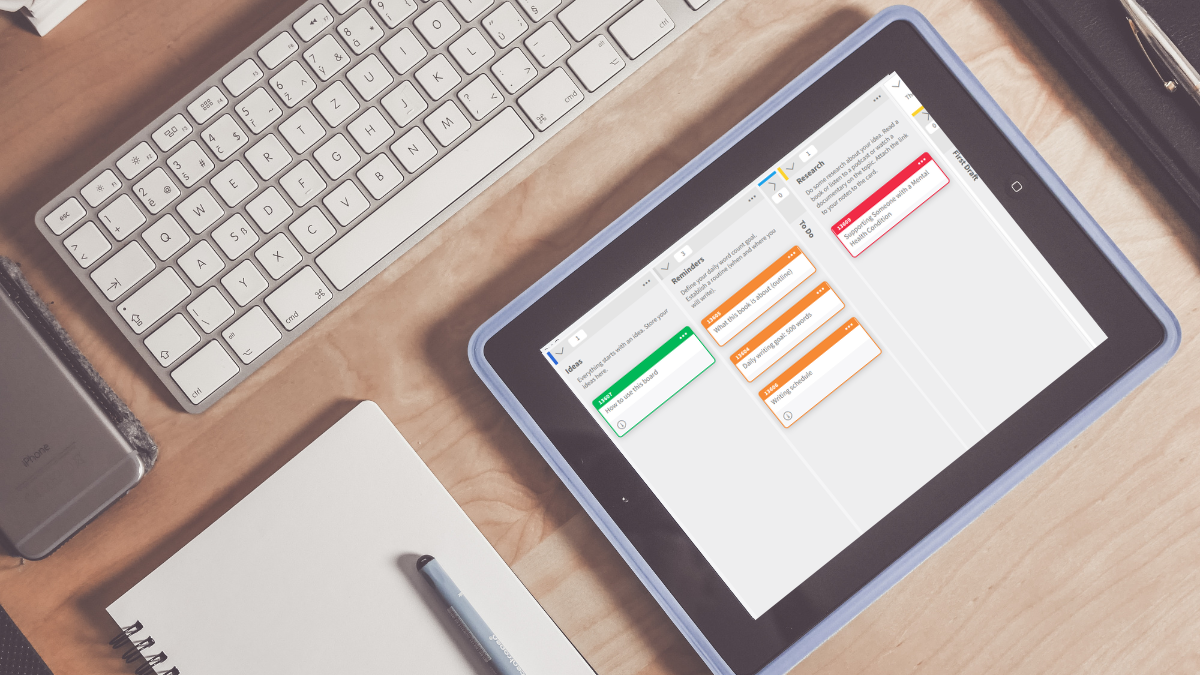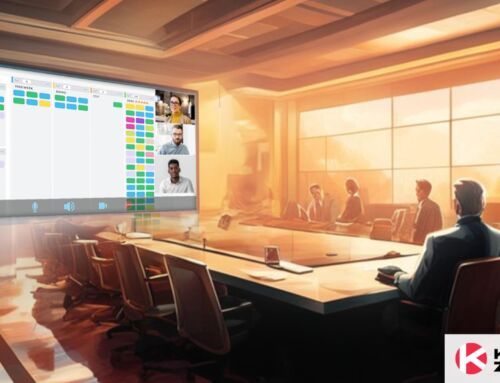
One of the things that I like about being a freelancer at Upwork is that I get to work with different clients. This exposes me to various industries, work styles, processes, and teams. It’s always a different experience but in each work engagement I enter, I investigate these three aspects to ensure I get to work effectively with my clients:
- Focus on results
- Open communication
- Clear expectations
During discovery calls, it’s important that I get to feel whether my client values the same work ethic and principles. I believe that more than skills, it’s building a good working relationship that determines the success of any project.
When I talked to Dimitri Ponomareff of Kanban Zone shortly after I got a job invite from him on Upwork, I immediately felt that I was going to enjoy working on his project. Aside from the fact that we both share an Agile background, it’s because of their company’s work values, processes, and tools that I genuinely felt that I was going to build a good working relationship with him and his team.
Working with Kanban Zone
Kanban Zone is a visual project management tool that leverages all aspects of the Kanban methodology. The Kanban Zone team doesn’t only develop and sell their product. They actually use the tool in ALL aspects of their business.
From developing their strategies to creating their product, the team behind Kanban Zone is able to maximize their tool to deliver results. This only means the tool is effective and is able to help them get more efficient with their work.
Straightforward Process
Our content execution is framed on the Kanban concept and using the Kanban Zone tool makes managing the work easier and more efficient. Our Kanban board perfectly captures our Content Management process. It is clear what is expected of each step, what the policies and rules are for transitioning tasks or cards, and who is responsible to get things moving.
Having a straightforward process, onboarding a new team member was done easily and quickly. From my own experience, I had all I needed within the Kanban board to understand how the team worked and how I fit in the process. After a couple of completed tasks, I was able to master the flow of our content management project. With the steps and the process policies clearly outlined and always visible in our board, executing the process became second nature.
Clear Priorities
Just by looking at our Kanban board, it is clear what I should be working on next. This is because my client orders the cards according to priority. This ensures that I am working on what’s most important for the project at each point in time.
Each card also has enough information for me to know what is expected from my output as well as any specific requirements, for example, SEO guidelines. This lessens the guesswork, unnecessary handoffs, and rework. As a freelancer, this means that I get to maximize the time I spend on the project and that I am able to deliver according to my client’s requirements.
I wanted to experience it for myself and so I did.
I was tasked to work on content and blog articles that are related to Kanban and Agile. I’ve worked on a similar project before, but this experience is different. I found it easier to work on this project because the Kanban Zone tool paved the way for a clear and straightforward process for me to execute my work. This allowed me to focus on delivering results and continuously improving my deliverables.
Focus and Productivity
With a Kanban system, I get to manage the flow of the work based on what I can handle. This is because of the pull system in play and having work-in-progress limits. Whenever I’m ready to work on a new card, all I need to do is pull from the list of cards that precedes the step that I am responsible for. Having a work-in-progress limit also forces me to complete the task before working on a new one.
This develops focus on my part as a freelancer. I don’t only have a bunch of tasks that I was able to start. I focus instead on delivering cards completely which makes me productive overall.
Ease of Collaboration
I get to work with the team remotely, with me being in the Philippines, and the rest of the team distributed around the world. Despite the geographical distance and time difference, we are able to work seamlessly. Everyone who needs to deliver a card together is tagged in a checklist and can jump into the card conversation at any time. This is done through the comments functionality that is present on each card.
We can also attach files and images to each card which removes the need for an external file sharing tool. What may come as a surprise to most is that all our project communication happens within Kanban Zone. We never use email. We’d occasionally chat through Upwork for non-project topics but whatever is related to the task and project, in general, is done through the Kanban Zone board.
What this also means is that time spent on managing emails and eventually getting distracted by other messages that are totally unrelated to the project is lessened, if not totally removed. Another great thing about this setup is that I know and can easily find any communication related to a project or task I’m working on.
Everything is in one place!
I just have to open the project Kanban board, locate the card, and look from there. If I need to clarify something, I just need to tag the right resource person in the card comments and our agreements and discussion are preserved. There’s minimal need for another messaging facility because all project discussions can happen within the Kanban Zone board.
Trust and Transparency
With my experience as a freelancer, I’ve come to observe that one of the worries of business owners when hiring remote freelancers is that they feel they won’t really know what the freelancer is doing. Upwork is able to handle the time-tracking part in this scenario. But I believe that when the client has a visual representation of what a freelancer is working on at any point in time and is able to check how the deliverables are being handled, it would make them feel more at ease and confident that the freelancer is working on their requirements.
With a Kanban board, the client can easily specify and prioritize the tasks that a freelancer needs to work on. On my part as a freelancer, I am able to easily show to my client what I am working on because it’s visible on the board. I don’t need to submit a report or a separate timesheet (which I’ve done for past clients, by the way) just to let my client know what I have been working on during the day. All they need to do is visit our project board and look from there. This is exactly what happens in our Content Management board for Kanban Zone.
Having a Kanban board that is accessible and open to everyone involved in the project definitely promotes transparency and builds trust. For me as a freelancer, it is important that I am confident that my client trusts in the way I deliver my work. And I believe that with a Kanban system coupled with an effective Kanban board such as Kanban Zone, I am able to hit this right on the mark.
Scaling my freelance business with Kanban Zone
With my experience working with Kanban Zone, I started adapting the process and the use of the tool in my other projects. By managing my freelance business with Kanban, I am able to communicate and collaborate better with my clients. I’ve also seen that it’s made me come across as more professional and organized. They also feel more engaged because of the transparent nature of my process. I am able to stay on top of my deliverables and offer a better experience for my clients.
In each client engagement, I am for a satisfying experience both for me and my clients.
In order to level up your freelance business, it is vital that you have the right systems and tools to position yourself for growth. While Upwork helps me get client leads, Kanban Zone helps me in the execution of my projects.
Learn to Work Smarter, Not Harder!
Get our top articles weekly.
Table Of Contents
Discover many more posts…






